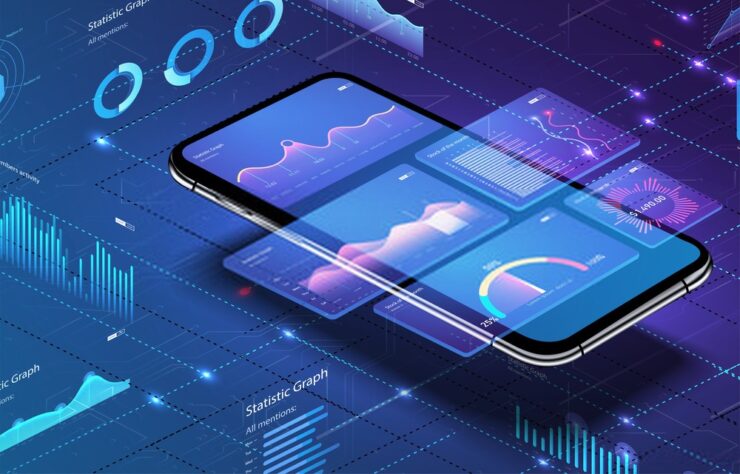In today’s digital world, securing sensitive data is a priority for many different industries. With daily threats of cyber-attacks and data breaches, the security of that information is vital in the healthcare industry. In this article, we will look at how COVID-19 has impacted data security, why it is important to gain the trust of patients and customers, how to secure sensitive data, and why non-compliance penalties can be crippling to an organization.
How COVID-19 Has Impacted Data Security
The changes to how healthcare services have been delivered during the pandemic created targets for cyber attacks. Telehealth opportunities and the increasing number of healthcare professionals working remotely resulted in a data security nightmare. FBI statistics point to a 400% increase in cyber-attack complaints. That alone presents a strong argument in favor of exploring new ways to secure data in the healthcare industry. Hackers see sensitive patient data and proprietary data on vaccines and testing as having a high value, making the information more attractive to cybercriminals. Any kind of cyber-attack can devastate a healthcare organization. They can result in networks going offline which may involve a loss of access to patient appointment information, surgical scheduling, and much more. These issues can put patients as well as the healthcare organization at risk. As COVID-19 has pushed data security to the top of the priority list, though these issues existed long before the pandemic, COVID-19 has pushed data security to the top of the priority list.
Gaining Trust from Patients and Customers
There is a strong connection between data privacy and trust in the healthcare setting. Regulations exist that focus entirely on patient privacy as a tool to build trust and long-term relationships with patients. It makes sense considering that patients turn to medical professionals because of trust and part of that is the volume of information a doctor or nurse can access about a patient. Protecting and maintaining the confidentiality of patient information is vital. This is why new and innovative data security tools must meet the IQ OQ PQ protocols and HIPAA (Health Insurance Portability and Accountability Act) standards.
Tips To Securing Sensitive Data
Several methods can be applied to a data security strategy. Here is a look at what those are.
Encryption Of Sensitive Patient Information
Encryption is an effective way to protect data. It is used for online transactions as part of internet banking which supports the level of security that encryption offers. Essentially, encryption renders data unreadable to anyone other than the intended recipients or authorized users. This also means that if a data breach occurs, encrypted data cannot be read by cybercriminals as they will not have the decryption key required to access the secured information.
Restricted Access
Probably one of the easiest security methods to understand is one built upon the principles of restricted access. The only people who can access the data are those who have permissions and passwords to unlock that secured data. An added layer of access restriction comes from a process known as multi-factor authentication: users must validate their identity through a system that requires two or more validation methods. This not only limits access but tracks who has accessed the information to prevent use by unauthorized users.
IoMT Devices with Security
With ongoing technological advancement, the Internet of Medical Things (IoMT) keeps transforming the healthcare industry. IoMT devices are becoming commonplace in hospitals and permit remote patient monitoring, better access to patient data, improved treatment planning, and much more. However, these new tools have also presented another level of risk in privacy issues. One way to keep IoMT devices secure is to keep them updated and attached to an authentication process.
Examine Third-Party Vendor Risk
An important measure in data security comes from the evaluation of compliance between business associates and third-party vendors. Third-party vendors present a different kind of risk to data; a breach resulting from the negligence of a third party will still make your organization liable. It is critical to assess third-party vendors and review them regularly along with any associated business partners.
Training Employees
There is no doubt that some data privacy issues are the result of untrained staff mishandling information. However, when employees learn about cybersecurity concepts and general data privacy procedures, they are better equipped to deal with situations related to a data breach. The better trained the employees are, the lower the risk of a data leak.
How Non-Compliance Penalties Can Hurt
There are several data privacy regulations in place to protect sensitive information. A cyberattack or data breach can put a healthcare organization in violation of these regulations. This can result in expensive fines and even the possibility of criminal charges. Depending on the severity of the violation, some healthcare organizations may end up going out of business. The best way to avoid this is to have a fool-proof data privacy policy and adhere to it with penalties for non-compliance.
Final Thoughts
Technology has changed how we do business in many different industries. One early adopter of new technology was the healthcare industry. Not only has technology streamlined the delivery of healthcare services, it has also provided a means to better collect and store patient information. With advances in healthcare, the need for ongoing data protection also increases. The vast collection of this data has become the target of hackers, resulting in many new types of data security being implemented. As technology evolves, so will the means of protecting sensitive data. The importance of data security in the healthcare industry cannot be underestimated. This is why new and innovative ways to protect this information are required now and well into the future.




























